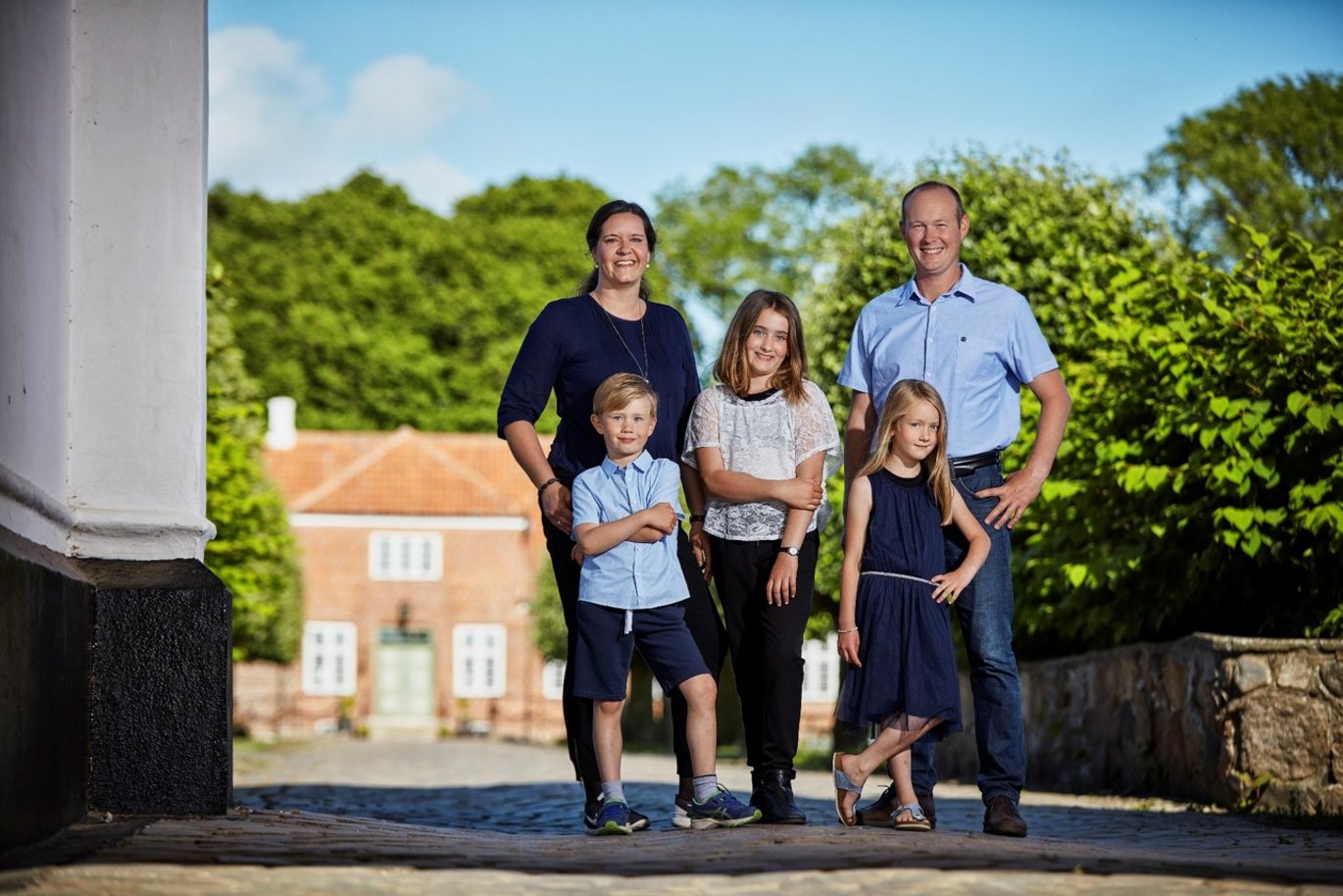We need to look for alternative products with both sustainable and economic benefits
At Ausumgaard in Denmark they believe in sustainability. Kristian Lundgaard-Karlshøj, who has inherited the historical manor from his parents, is thinking a lot about the next generation. He wants Ausumgaard to be an attractive farm in the future, and this includes to a great extent sustainability and animal welfare. At the same time new initiatives should also be attractive in a financial perspective to make it work.

At the OK-Net EcoFeed Thematic Group online Meeting, 26th of May 2020, Kristian Lundgaard-Karlshøj spoke of the benefits of a new alternative protein such as grass protein: “In the future we will be provided with a number of alternative proteins and grass protein has great potential”.
He opened his talk by telling that Ausumgaard was converted into an organic farm two years ago, and that they are very happy with this decision. “It challenges our traditional thinking; we believe that traditional farm products have to change and transform into products with more benefits, e.g. we have to think in new directions for producing proteins to meet the requirements to our organic pig production".
Ausumgaard has, in cooperation with SEGES, Vestjyllands Andel and R&D Engineering & Automation, developed a plant that can extract protein of grass and thus offering Danish pig and poultry producers a climate-friendly alternative to the soya protein that is currently imported from South America and Asia. The plant will be the first of its kind on commercial conditions in Denmark and will secure a new production line of sustainable and locally produced, high-end protein feed.
Synergy in the project
Kristian Lundgaard-Karlshøj explains that there is a lot of potentials and benefits to gain from making grass protein: “We have the possibility to make synergy between organic plant production, biogas production and our strategy on sustainable businesses. For instance, our biogas plant is able to make use of the by-products from the grass protein production; grass fibre, brown juice and suddenly occurred trash productions. Also, the specific way you harvest clover grass indicates, that it is cost efficient compared to traditional harvesting. Further, our organic plant production will benefit greatly from having more clover grass. It is a lot of small factors, but all together, they add up to something that can work in our farm”. Kristian Lundgaard-Karlshøj adds that Ausumgaard has been involved in previous protein experiments. e.g. a project with mealworms, and it is very important that the key persons in such projects knows each other well and trust each other, because it makes the collaboration and the project much more efficient.
Grass protein is produced in green biorefineries - here is the process shown:

Future perspectives
Kristian Lundgaard-Karlshøj wrapped up his talk by making thoughts about the future perspectives of grass protein: “What is the real value of producing protein on clover grass? Is it sustainability, local production, environmental value (CO2, Nitrogen, biodiversity, known origin)? Will humans be the target for grass protein? Will grass protein factories be farm based or big factories? How much clover grass will cover the farmland? Will grass protein someday be able to compete with conventional soy? We are moving towards a big green revolution. This is just the beginning. I’m not sure, where this grass protein project will take us, but I’m confident that we will benefit from it”.
| FACT BOX |
|---|
Ausumgaards has 1050 hectare organic farming incl. grass seed, oil Rapeseed, clover grass and cereals, 100 hectare forest, buildings and garden, 500.000 pcs. chickens, 9 mio. Nm3 bionaturgas, 17.000 Visitors per year, 4x 3 MW, Vestas V112 wind turbines, a small organic pig production (200 pcs. per year), flour (small scale) and a small farmshop. |
OK-Net EcoFeed is a European Thematic network of innovation groups that facilitates exchange and co-creation of knowledge among farmers, business actors, researchers and advisors. The network aims at helping organic pig and poultry farmers in achieving the goal of 100% use of organic and regional feed. |
SuperGrassPork
At the OK-Net EcoFeed Thematic Group Meeting, Erik Fog (SEGES), who is coordinating the Organic RDD 3 project, 'SuperGrassPork' was also present and gave a short presentation of the benefits of using Grass Protein. Here you can see his presentation
Relevant links
The "TailorGrass" project: A grass protein factory: https://www.rd-as.com/grass-protein-factory/
SuperGrassPork: https://icrofs.dk/en/research/danish-research/organic-rdd-3/supergrasspork/
Video on Grass Protein - a golden chance to improve organic farming: https://www.seges.tv/video/28122489/grass-protein-a-golden-chance-to-improve-organic
Webinar talk by Kristian Lundgaard-Karlshøj at OK-Net EcoFeed Thematic Group Meeting, 26th of May 2020
 “This project has received funding from the European Union’s Horizon 2020 research and innovation programme under grant agreement No 773911. The information contained in this communication only reflects the author’s view.”
“This project has received funding from the European Union’s Horizon 2020 research and innovation programme under grant agreement No 773911. The information contained in this communication only reflects the author’s view.”